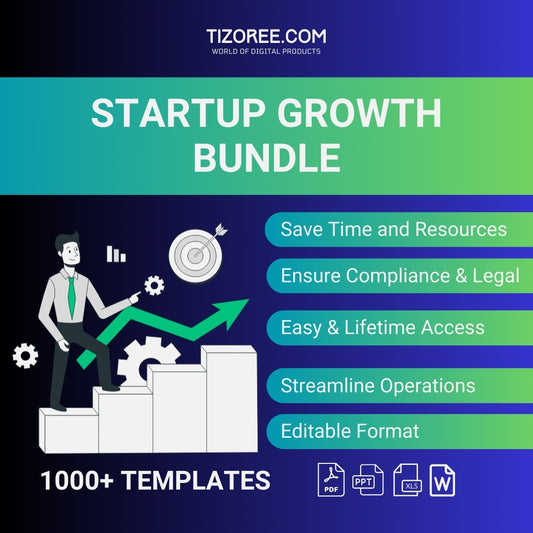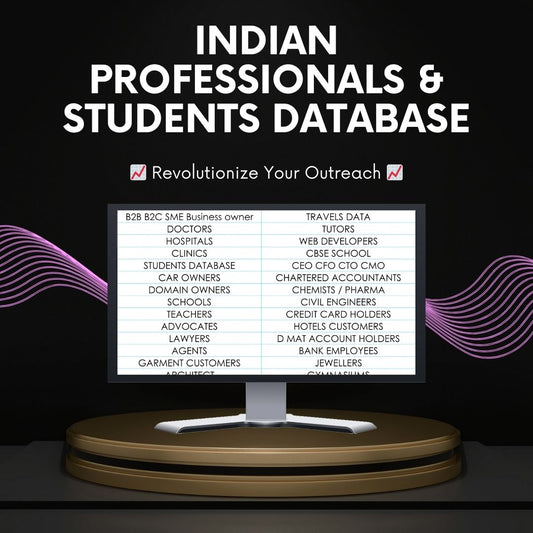SEO में महारत हासिल करना: शुरुआती लोगों के लिए एक व्यापक गाइड
शेयर करना
सर्च इंजन ऑप्टिमाइजेशन (SEO) पर अंतिम गाइड में आपका स्वागत है। इस पोस्ट में, हम SEO की बुनियादी बातों पर चर्चा करेंगे, जटिल अवधारणाओं को प्रबंधनीय खंडों में विभाजित करेंगे जो आपको प्रभावी रणनीतियों को समझने और लागू करने में मदद करेंगे। यह गाइड शुरुआती लोगों के लिए डिज़ाइन की गई है, लेकिन इसमें मूल्यवान अंतर्दृष्टि है जो अनुभवी मार्केटर्स को भी लाभ पहुंचा सकती है।
एसईओ की मूल बातें समझना
SEO का मतलब सर्च इंजन ऑप्टिमाइजेशन है, यह एक ऐसी प्रक्रिया है जिसका उद्देश्य सर्च इंजन परिणामों में दृश्यता में सुधार करने के लिए वेब सामग्री को अनुकूलित करना है। इस अनुभाग में बताया जाएगा कि SEO क्या है, यह क्यों महत्वपूर्ण है, और सर्च इंजन कैसे काम करते हैं।
एसईओ क्या है और यह महत्वपूर्ण क्यों है?
SEO में आपकी सामग्री को इस तरह से अनुकूलित करना शामिल है कि उसे सर्च इंजन द्वारा आसानी से खोजा जा सके, जिससे अंततः ऑर्गेनिक ट्रैफ़िक में वृद्धि हो। सशुल्क विज्ञापनों के विपरीत, ऑर्गेनिक सर्च ट्रैफ़िक मुफ़्त, सुसंगत है, और व्यापक दर्शकों तक पहुँच सकता है। अक्टूबर 2019 तक, लगभग 4 बिलियन लोग Google का उपयोग कर रहे थे, जिससे SEO किसी भी व्यवसाय के लिए एक आवश्यक रणनीति बन गई है जो ऑनलाइन खोजा जाना चाहता है।
खोज इंजन कैसे काम करते हैं
सर्च इंजन को लाइब्रेरी की तरह समझें, जो किताबों के बजाय वेब पेजों की प्रतियां संग्रहीत करता है। जब आप कुछ खोजते हैं, तो सर्च इंजन अपने इंडेक्स से सबसे प्रासंगिक पेजों को पुनः प्राप्त करता है। इस प्रक्रिया में क्रॉलिंग और इंडेक्सिंग शामिल है, जहां क्रॉलर वेब से जानकारी एकत्र करते हैं और इसे पुनः प्राप्ति के लिए संग्रहीत करते हैं।
एसईओ में प्रमुख कारक
अच्छी रैंकिंग पाने के लिए आपको कई महत्वपूर्ण कारकों को समझना होगा:
- बैकलिंक्स: अन्य प्रतिष्ठित साइटों से लिंक खोज इंजनों को विश्वसनीयता का संकेत देते हैं।
- खोज का उद्देश्य: प्रासंगिक सामग्री बनाने के लिए यह समझना महत्वपूर्ण है कि उपयोगकर्ता खोज करते समय क्या खोज रहे हैं।
- सामग्री की गहराई: किसी विषय पर व्यापक जानकारी प्रदान करने से आपकी रैंकिंग में सुधार हो सकता है।
मॉड्यूल 1: कीवर्ड रिसर्च
कीवर्ड रिसर्च SEO की नींव है। इस मॉड्यूल में, हम यह पता लगाएंगे कि अपनी सामग्री के लिए सही कीवर्ड कैसे खोजें और चुनें।
कीवर्ड क्या हैं?
कीवर्ड वे शब्द और वाक्यांश हैं जिन्हें उपयोगकर्ता सर्च इंजन में दर्ज करते हैं। वे आपके SEO प्रयासों को निर्देशित करते हैं, जिससे आपको यह समझने में मदद मिलती है कि आपके दर्शक क्या खोज रहे हैं।
सही कीवर्ड चुनना
कीवर्ड चुनते समय निम्नलिखित बातों पर विचार करें:
- खोज मांग: सुनिश्चित करें कि कीवर्ड की मासिक खोज पर्याप्त हो।
- ट्रैफ़िक संभावना: आकलन करें कि यदि आप उस कीवर्ड के लिए उच्च रैंक प्राप्त करते हैं तो आपको कितना ट्रैफ़िक प्राप्त हो सकता है।
- व्यावसायिक संभावना: यह निर्धारित करें कि कीवर्ड आपके व्यवसाय के लिए कितना महत्व रखता है।
- खोज इरादा: सुनिश्चित करें कि आप उस कीवर्ड को खोजने वाले उपयोगकर्ताओं की आवश्यकताओं को पूरा कर सकते हैं।
- रैंकिंग कठिनाई: मूल्यांकन करें कि उस कीवर्ड के लिए रैंक करना कितना चुनौतीपूर्ण होगा।
खोज इरादे को समझना
सर्च इंटेंट यूजर की क्वेरी के पीछे का कारण होता है। सर्च इंटेंट से मेल खाने के लिए, अपने लक्षित कीवर्ड के लिए शीर्ष रैंकिंग वाले पेजों का विश्लेषण करें। इससे आपको यूजर की अपेक्षाओं को पूरा करने वाली सामग्री बनाने में मदद मिलेगी।
मॉड्यूल 2: ऑन-पेज एसईओ
ऑन-पेज SEO का मतलब है सर्च इंजन में उच्च रैंक पाने और अधिक प्रासंगिक ट्रैफ़िक प्राप्त करने के लिए व्यक्तिगत वेब पेजों को अनुकूलित करना। इस मॉड्यूल में, हम बताएंगे कि अनुकूलित सामग्री कैसे बनाई जाती है।
अनुकूलित सामग्री बनाना
खोज के लिए अपनी सामग्री को अनुकूलित करने के लिए, इन पर ध्यान दें:
- खोजकर्ता के इरादे को संतुष्ट करना.
- उपयुक्त शीर्षक और मेटा विवरण का उपयोग करना।
- आंतरिक लिंक का कार्यान्वयन.
- पठनीयता सुनिश्चित करना.
ऑन-पेज एसईओ के तकनीकी तत्व
कंटेंट के अलावा, HTML टैग, इमेज ऑप्टिमाइजेशन और मोबाइल रिस्पॉन्सिबिलिटी जैसे तकनीकी पहलू ऑन-पेज SEO में महत्वपूर्ण भूमिका निभाते हैं। सुनिश्चित करें कि आपकी वेबसाइट तेज़, तार्किक रूप से संरचित और त्रुटियों से मुक्त हो।
मॉड्यूल 3: लिंक बिल्डिंग
लिंक बिल्डिंग अन्य वेबसाइटों से अपनी वेबसाइट पर हाइपरलिंक प्राप्त करने की प्रक्रिया है। ये लिंक आपकी साइट के अधिकार और खोज रैंकिंग को बेहतर बनाने के लिए महत्वपूर्ण हैं।
लिंक बिल्डिंग क्यों महत्वपूर्ण है
Google बैकलिंक्स को एक महत्वपूर्ण रैंकिंग कारक के रूप में उपयोग करता है। प्रतिष्ठित साइटों से गुणवत्ता वाले बैकलिंक्स खोज इंजनों को संकेत देते हैं कि आपकी सामग्री विश्वसनीय और मूल्यवान है।
लिंक बनाने की रणनीतियाँ
बैकलिंक्स प्राप्त करने के लिए कई रणनीतियाँ हैं:
- अतिथि ब्लॉगिंग: अपनी साइट पर लिंक प्राप्त करने के लिए अन्य वेबसाइटों के लिए लेख लिखें।
- ईमेल आउटरीच: प्रासंगिक साइटों तक पहुंचें और अपनी सामग्री के लिए लिंक का अनुरोध करें।
- मूल्यवान सामग्री तैयार करना: उच्च गुणवत्ता वाली, साझा करने योग्य सामग्री तैयार करें जो स्वाभाविक रूप से लिंक आकर्षित करे।
मॉड्यूल 4: तकनीकी एसईओ
तकनीकी एसईओ आपकी वेबसाइट के बुनियादी ढांचे को अनुकूलित करने पर केंद्रित है ताकि खोज इंजन आपकी साइट को प्रभावी ढंग से क्रॉल और अनुक्रमित कर सकें।
प्रमुख तकनीकी एसईओ अभ्यास
सुनिश्चित करें कि आपकी वेबसाइट इन सर्वोत्तम प्रथाओं का पालन करती है:
- आसान नेविगेशन के लिए तार्किक साइट संरचना बनाए रखें।
- उपयोगकर्ता अनुभव को बढ़ाने के लिए पृष्ठ की गति को अनुकूलित करें।
- तकनीकी समस्याओं के लिए अपनी साइट का नियमित रूप से ऑडिट करें।
तकनीकी SEO में शीर्ष पर बने रहें
अपनी वेबसाइट की सेहत पर नज़र रखने और संभावित समस्याओं की पहचान करने के लिए टूल का इस्तेमाल करें। नियमित ऑडिट आपको एक अच्छी तरह से अनुकूलित साइट बनाए रखने में मदद कर सकते हैं।
निष्कर्ष
SEO के मूल सिद्धांतों में महारत हासिल करके, आप अपनी वेबसाइट की दृश्यता और ट्रैफ़िक में उल्लेखनीय सुधार कर सकते हैं। चाहे आप शुरुआती हों या अपने कौशल को निखारना चाहते हों, इस गाइड में बताई गई रणनीतियाँ एक मूल्यवान संसाधन के रूप में काम करेंगी। अपने SEO प्रयासों में सकारात्मक परिणाम देखने के लिए आज ही इन तकनीकों को लागू करना शुरू करें!



